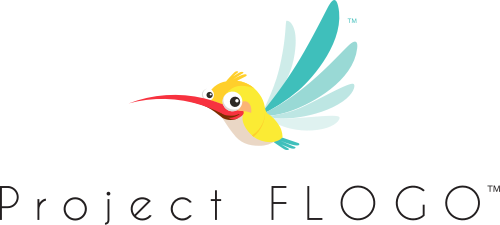I have an issue reading a parameter from the input (mapping from trigger). I may not use the right expression, but this is what is generated by flogo-web and I can't find a proper example.
Attached is my app flogo.json
flogo.json.zip
And here are the DEBUG logs from execution:
`2017-11-21 11:57:50.352 DEBUG [engine] - Received work request
2017-11-21 11:57:50.353 DEBUG [engine] - Dispatching work request
2017-11-21 11:57:50.353 DEBUG [engine] - worker-2: Received Request
2017-11-21 11:57:50.353 DEBUG [engine] - No mapping specified, adding trigger outputs as inputs to action
2017-11-21 11:57:50.354 DEBUG [engine] - Attr: proc_id, Type: string, Value:
2017-11-21 11:57:50.354 DEBUG [engine] - Attr: version, Type: integer, Value:
2017-11-21 11:57:50.354 DEBUG [engine] - Attr: client, Type: string, Value: 127.0.0.1:49500
2017-11-21 11:57:50.354 DEBUG [engine] - Attr: content, Type: string, Value: LEEF:1.0|Extreme Networks|Purview|1.0|Purview Flow|devTime=1467030101 proto=TCPsrc=192.168.171.17 dst=17.252.11.246 srcPort=50951 dstPort=443 Application=Apple ApplicationInt=12975 ClientOS=iOS iPhone ClientOSFamily=iOS DHCP_ClientIP=192.168.171.17 ServerIP=17.252.11.246 SwitchType=CoreFlow uuid=a0379a36
2017-11-21 11:57:50.354 DEBUG [engine] - Attr: hostname, Type: string, Value: purview
2017-11-21 11:57:50.354 DEBUG [engine] - Attr: message, Type: string, Value:
2017-11-21 11:57:50.354 DEBUG [engine] - Attr: facility, Type: integer, Value: 3
2017-11-21 11:57:50.354 DEBUG [engine] - Attr: tag, Type: string, Value: appid
2017-11-21 11:57:50.354 DEBUG [engine] - Attr: priority, Type: integer, Value: 27
2017-11-21 11:57:50.354 DEBUG [engine] - Attr: timestamp, Type: string, Value: 2017-06-27T14:21:41Z
2017-11-21 11:57:50.354 DEBUG [engine] - Attr: tls_peer, Type: string, Value:
2017-11-21 11:57:50.354 DEBUG [engine] - Attr: severity, Type: integer, Value: 3
2017-11-21 11:57:50.354 DEBUG [engine] - Attr: app_name, Type: string, Value:
2017-11-21 11:57:50.354 DEBUG [engine] - Attr: msg_id, Type: string, Value:
2017-11-21 11:57:50.354 INFO [engine] - In Flow Run uri: 'syslogs_flow'
2017-11-21 11:57:50.354 DEBUG [engine] - Getting Flow: syslogs_flow
2017-11-21 11:57:50.354 DEBUG [engine] - Creating Instance: 796117c4ede01a42f7bcd22ab5a8ee1e
2017-11-21 11:57:50.354 DEBUG [engine] - Input Attributes:
2017-11-21 11:57:50.354 DEBUG [engine] - Attr:proc_id, Type:string, Value:
2017-11-21 11:57:50.354 DEBUG [engine] - Attr:_T.proc_id, Type:string, Value:
2017-11-21 11:57:50.354 DEBUG [engine] - Attr:version, Type:integer, Value:
2017-11-21 11:57:50.354 DEBUG [engine] - Attr:_T.version, Type:integer, Value:
2017-11-21 11:57:50.354 DEBUG [engine] - Attr:client, Type:string, Value:127.0.0.1:49500
2017-11-21 11:57:50.354 DEBUG [engine] - Attr:_T.client, Type:string, Value:127.0.0.1:49500
2017-11-21 11:57:50.354 DEBUG [engine] - Attr:content, Type:string, Value:LEEF:1.0|Extreme Networks|Purview|1.0|Purview Flow|devTime=1467030101 proto=TCPsrc=192.168.171.17 dst=17.252.11.246 srcPort=50951 dstPort=443 Application=Apple ApplicationInt=12975 ClientOS=iOS iPhone ClientOSFamily=iOS DHCP_ClientIP=192.168.171.17 ServerIP=17.252.11.246 SwitchType=CoreFlow uuid=a0379a36
2017-11-21 11:57:50.354 DEBUG [engine] - Attr:_T.content, Type:string, Value:LEEF:1.0|Extreme Networks|Purview|1.0|Purview Flow|devTime=1467030101 proto=TCPsrc=192.168.171.17 dst=17.252.11.246 srcPort=50951 dstPort=443 Application=Apple ApplicationInt=12975 ClientOS=iOS iPhone ClientOSFamily=iOS DHCP_ClientIP=192.168.171.17 ServerIP=17.252.11.246 SwitchType=CoreFlow uuid=a0379a36
2017-11-21 11:57:50.354 DEBUG [engine] - Attr:hostname, Type:string, Value:purview
2017-11-21 11:57:50.354 DEBUG [engine] - Attr:_T.hostname, Type:string, Value:purview
2017-11-21 11:57:50.354 DEBUG [engine] - Attr:message, Type:string, Value:
2017-11-21 11:57:50.354 DEBUG [engine] - Attr:_T.message, Type:string, Value:
2017-11-21 11:57:50.354 DEBUG [engine] - Attr:facility, Type:integer, Value:3
2017-11-21 11:57:50.354 DEBUG [engine] - Attr:_T.facility, Type:integer, Value:3
2017-11-21 11:57:50.354 DEBUG [engine] - Attr:tag, Type:string, Value:appid
2017-11-21 11:57:50.354 DEBUG [engine] - Attr:_T.tag, Type:string, Value:appid
2017-11-21 11:57:50.354 DEBUG [engine] - Attr:priority, Type:integer, Value:27
2017-11-21 11:57:50.354 DEBUG [engine] - Attr:_T.priority, Type:integer, Value:27
2017-11-21 11:57:50.354 DEBUG [engine] - Attr:timestamp, Type:string, Value:2017-06-27T14:21:41Z
2017-11-21 11:57:50.354 DEBUG [engine] - Attr:_T.timestamp, Type:string, Value:2017-06-27T14:21:41Z
2017-11-21 11:57:50.354 DEBUG [engine] - Attr:tls_peer, Type:string, Value:
2017-11-21 11:57:50.354 DEBUG [engine] - Attr:_T.tls_peer, Type:string, Value:
2017-11-21 11:57:50.354 DEBUG [engine] - Attr:severity, Type:integer, Value:3
2017-11-21 11:57:50.354 DEBUG [engine] - Attr:_T.severity, Type:integer, Value:3
2017-11-21 11:57:50.354 DEBUG [engine] - Attr:app_name, Type:string, Value:
2017-11-21 11:57:50.354 DEBUG [engine] - Attr:_T.app_name, Type:string, Value:
2017-11-21 11:57:50.354 DEBUG [engine] - Attr:msg_id, Type:string, Value:
2017-11-21 11:57:50.354 DEBUG [engine] - Attr:_T.msg_id, Type:string, Value:
2017-11-21 11:57:50.354 INFO [engine] - FlowInstance Flow: &{tibco-simple 0x160acf0 map[1:0x160acf0]}
2017-11-21 11:57:50.354 DEBUG [engine] - Scheduling EVAL on task:
2017-11-21 11:57:50.354 DEBUG [engine] - Executing instance: 796117c4ede01a42f7bcd22ab5a8ee1e
2017-11-21 11:57:50.354 DEBUG [engine] - *** Worker received result: &{map[id:0xc4201601b0 data:0xc420160210 code:0xc420160240] }
2017-11-21 11:57:50.355 DEBUG [engine] - Step: 1
2017-11-21 11:57:50.355 DEBUG [engine] - popped item off queue
2017-11-21 11:57:50.355 DEBUG [model-tibco-simple] - Task Eval: Task[%!d(string=1)]:''
2017-11-21 11:57:50.355 DEBUG [model-tibco-simple] - Has Children
2017-11-21 11:57:50.355 DEBUG [model-tibco-simple] - Task Enter: Log Message
2017-11-21 11:57:50.355 DEBUG [engine] - FromInstLinks: task=0x130c210
2017-11-21 11:57:50.355 DEBUG [model-tibco-simple] - Task Ready
2017-11-21 11:57:50.355 DEBUG [engine] - Scheduling EVAL on task: Log Message
2017-11-21 11:57:50.355 DEBUG [engine] - Step: 2
2017-11-21 11:57:50.355 DEBUG [engine] - popped item off queue
2017-11-21 11:57:50.355 DEBUG [engine] - Applying InputMapper
2017-11-21 11:57:50.355 DEBUG [engine] - AddAttr - name: {Error.type}, type: string, value:mapper
2017-11-21 11:57:50.355 DEBUG [engine] - AddAttr - name: {Error.message}, type: string, value:invalid resolution expression [${severity}]
2017-11-21 11:57:50.355 DEBUG [engine] - Done Executing A.instance [796117c4ede01a42f7bcd22ab5a8ee1e] - Status: 700
2017-11-21 11:57:50.355 DEBUG [engine] - worker-2: Completed Request`




